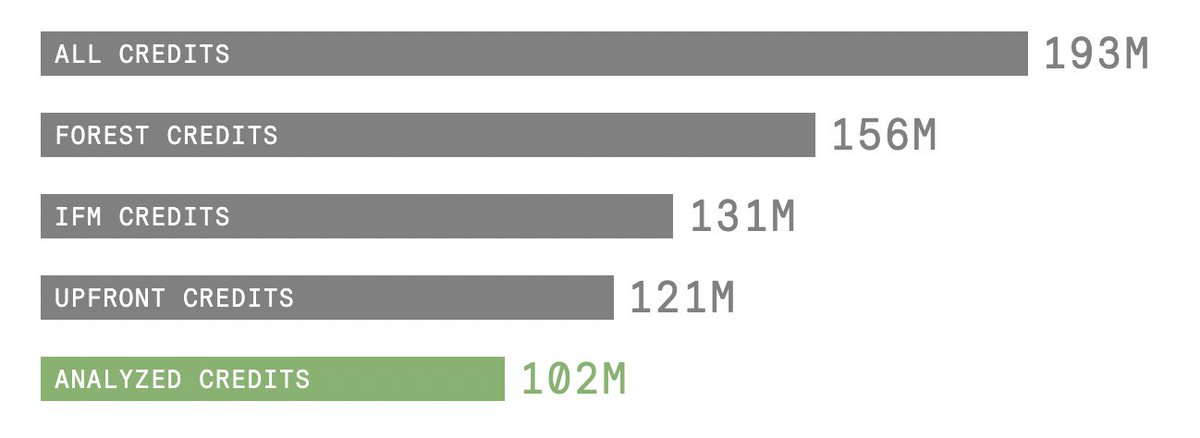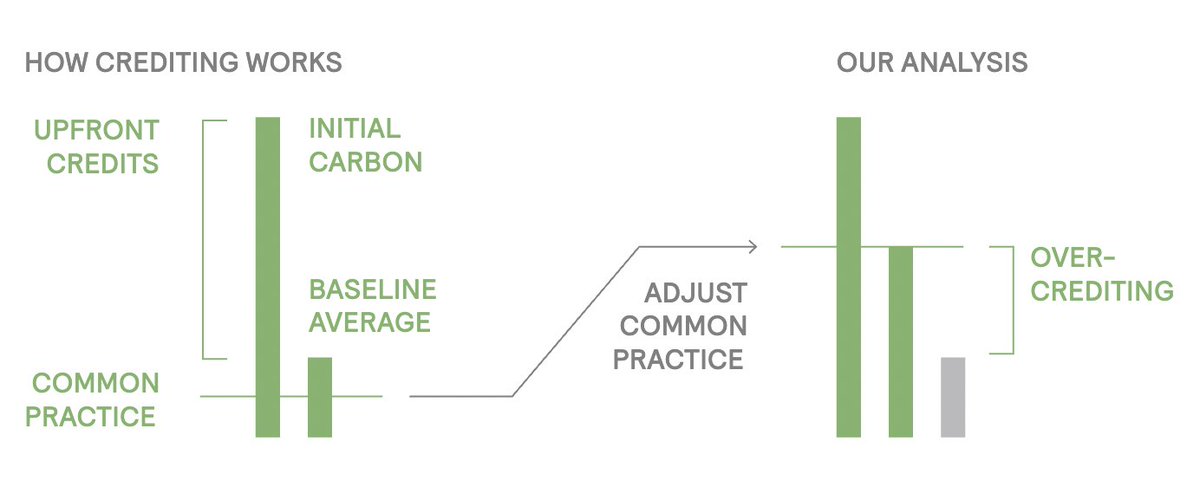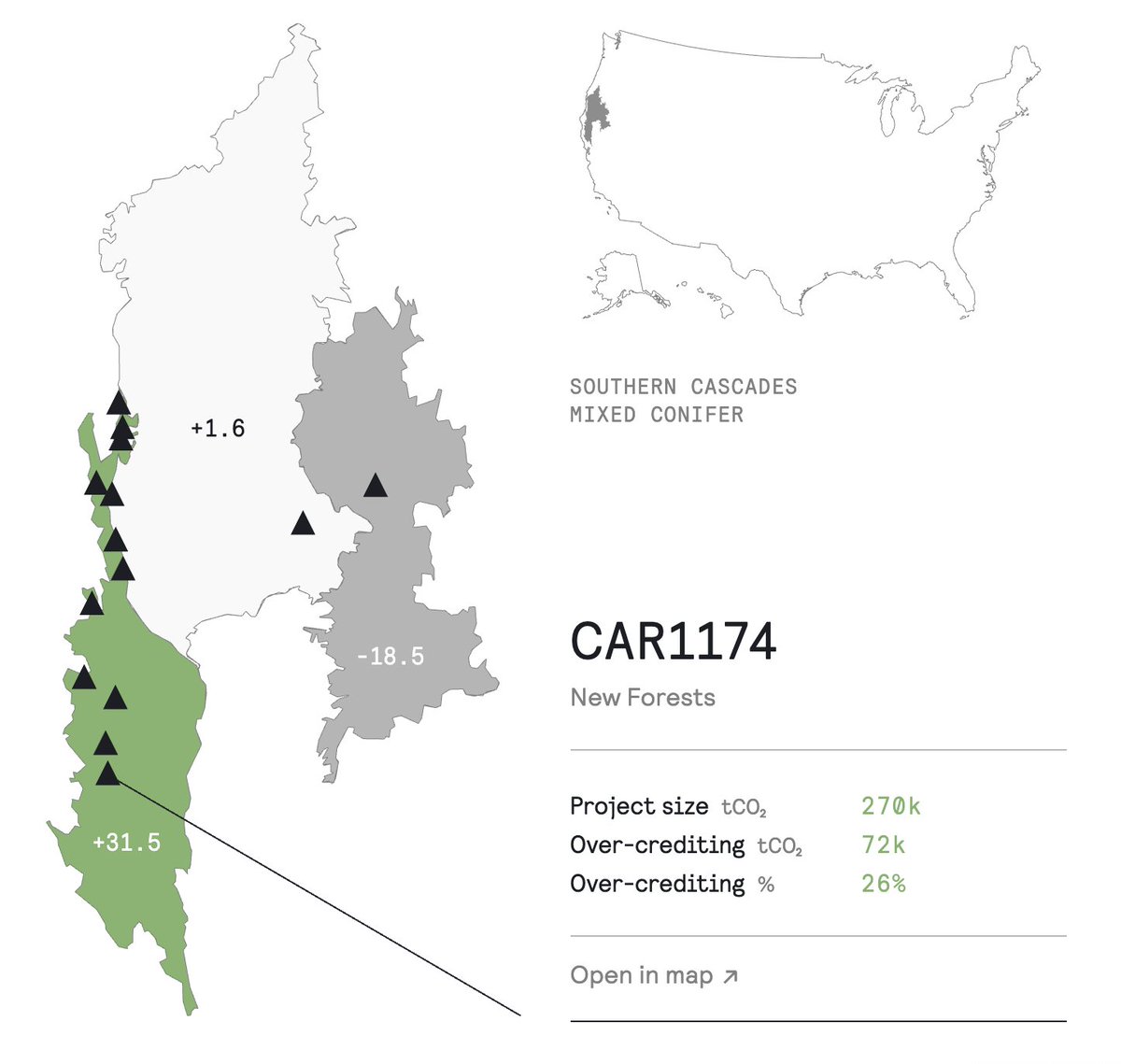
We are excited to release a major new study led by the remarkable forest ecologist @gmbadge documenting widespread over-crediting in California’s forest carbon offsets program. (1/20) carbonplan.org/research/fores…
You can read about our study in the context of an investigative report on California’s offsets program from @lisalsong (@propublica) and @jtemple (@techreview). (2/20) propublica.org/article/the-cl…
Our study analyzes public program records to test whether California’s offsets program over- or under-credits forest offsets projects. We find evidence of over-crediting at a large and pervasive scale. (3/20)
Rather than offer a low-cost option for complying with California’s climate laws, the forest offsets program has led to tens of millions of tons of extra greenhouse gas pollution — undermining the very progress it was intended to support. (4/20)
To start, we digitized the massively complex and opaque public records in California’s forest carbon offsets program, the largest of its kind. Our novel database is now available for all. (5/20) doi.org/10.5281/zenodo…
You can also browse the database and our summary results in an interactive map. (6/20) carbonplan.org/research/fores…
As we dug into the program rules, we realized that more than half of the total offsets in circulation come from “upfront” credits awarded to forest projects on the basis of an ecologically inappropriate comparison. (7/20)
Most projects earn upfront credit for the difference between the carbon stored on their lands and a coarse regional average (“common practice”) — an approach that lumps together different forest types over large and climatologically dissimilar regions. (8/20) 

Coarse regional averages allow project developers to preferentially select locations where forests are naturally more carbon-rich than the average — all to maximize the number of credits they earn without achieving real climate benefits. (9/20)
Instead of lumping everything together, we used the digitized records to count carbon in only those forests with similar species compositions. (10/20)
With this new approach in hand, we were able to systematically evaluate the extent to which the California program over-credits or under-credits individual forest offset projects. (11/20) 

The results are striking. We found that almost 30% of the credits we studied don’t reflect real climate benefits, representing about 30 million tCO₂e and a value of more than $400 million at recent market prices. (12/20) 

We also found two significant, factual errors in the program rules. (13/20)
First, we showed that the most-used program region in Northern California was constructed in a way that violated program terms. This region combined completely distinct forest types, producing an inaccurate estimate of common practice. (14/20) 

Second, we identified a large project in New Mexico that abused a loophole when program rules assumed a common practice of zero — that is, that forests in New Mexico contained no carbon. We estimate it was 100% over-credited. (15/20) carbonplan.org/research/fores…
It’s striking how fundamental the statistical errors in defining common practice turned out to be. This problem is well-known in geospatial and ecological analysis, but its pernicious effects in California went unnoticed for years. (16/20)
Our work highlights how a lack of transparency and independent scientific review can hobble major climate programs — and that the problems with carbon offsets aren’t limited to voluntary markets. (17/20)
bloomberg.com/features/2020-…
bloomberg.com/features/2020-…
While our analysis is critical and the results are disappointing, we believe forward progress only begins by understanding our mistakes — so that we can do better in the future. (18/20)
Finally, this project was an exercise in applying fully reproducible open science to climate policy — all of our data and code is freely available, enabling anyone to recreate all the numbers and figures used in our study. (19/20) github.com/carbonplan/for…
Thanks to our full author team — @gmbadge @thefreemanlab, @HammanHydro, Barbara Haya (UC Berkeley), @TrugmanLab (UCSB), Bill Anderegg (University of Utah), and @dcullenward! (20/20)
• • •
Missing some Tweet in this thread? You can try to
force a refresh



